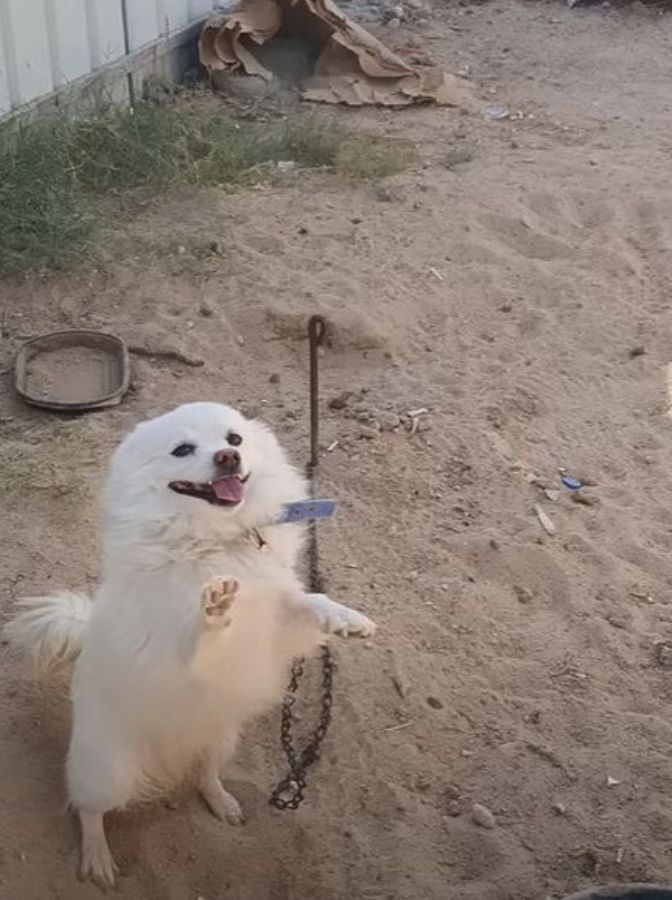In the unlikeliest of places – behind prison bars – a tale of compassion, redemption, and transformation takes place.
The unconditional love that an adorable little puppy brings is truly one of the most purifying forces in the world, and this amazing story is a real example of how much good these furry creatures actually bring.
The partnership between these incarcerated individuals and puppies proves that even in confinement, there is still a chance for empathy and second chances at life.
Inside The Prison Puppies Initiative
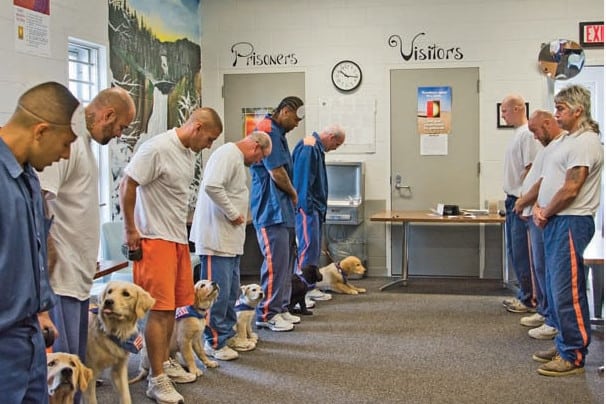
The Prison Puppies Initiative is an honorable program of the Leader Dogs for the Blind organization.
Sounds unbelievable, but it’s actually one of the best programs that brings incredible results.
Through this program, Future Leader Dogs are paired with model prisoners who have demonstrated good behavior while being incarcerated, and have passed the screening process, and can be trusted to take care of a puppy 24/7 for the next 12 to 15 months.
Leader Dogs for the Blind have been in existence since 1939, and they have a goal to empower people who are blind or visually impaired.
They took a chance with prisoners, and it turned out to be a huge success with “benefits that are simply unmeasurable,” said Rod Haneline, Chief Programs and Services Officer for Leader Dogs.
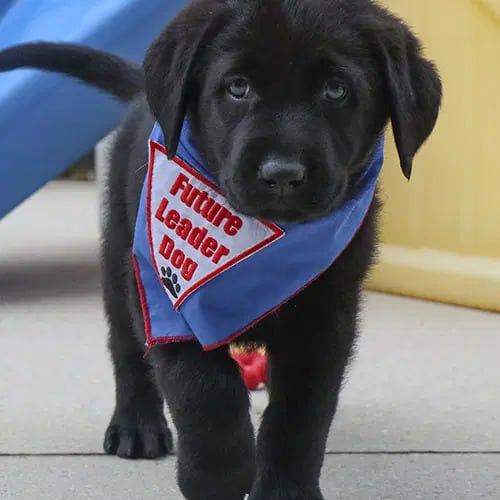
This program started in 2002 at North Central Correctional Facility in Iowa, but now there are over 100 puppies placed each year across 12 facilities in three states (Iowa, Michigan, and Minnesota).
The Prison Puppies are supported 100% financially by sponsors, and throughout their training in prison, they receive full medical care and everything they need for a happy and healthy life.
According to the Leader Dogs website, the inmates’ duty is to fully take care of puppies, socialize them, build a solid foundation of skills, including basic obedience, and prepare them for their lives as guide dogs.
Incarcerated Hearts, Guiding Paws
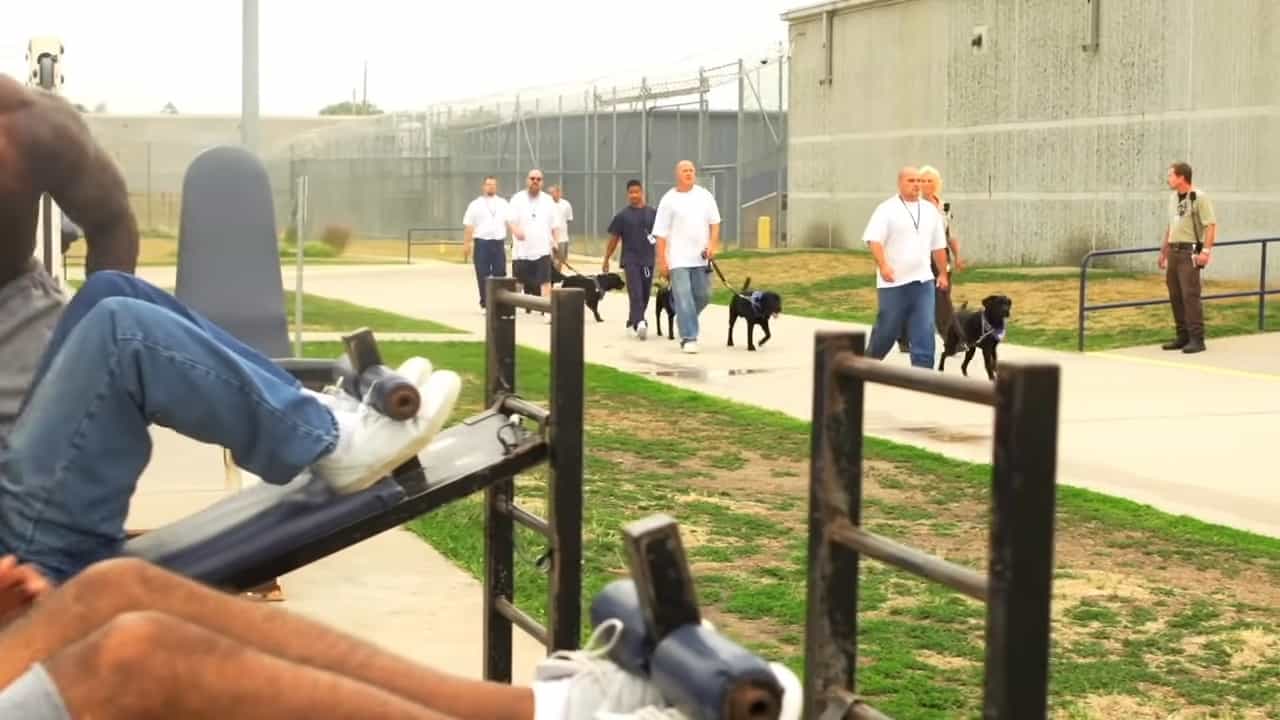
To date, although it seemed very risky at the beginning, this initiative proved to be a huge success on multiple levels.
In fact, almost 60% of the puppies raised and trained through this program end up successfully assisting the blind, whereas the success rate of puppies trained outside the prison is around 45%.
“Many of our dogs raised in correctional facilities go on to not only graduate, but have long-term successful working careers as guide dogs,” said Melissa Spooner, Prison Puppies coordinator for Leader Dogs for the Blind.
“I can honestly say I was miserable before this, and with this dog, it brings out inner peace, like ‘hey, you’re doing something good, finally, instead of destroying people’s life out there’,” said Blake, one of the inmates and puppy raisers.
Puppies With A Purpose
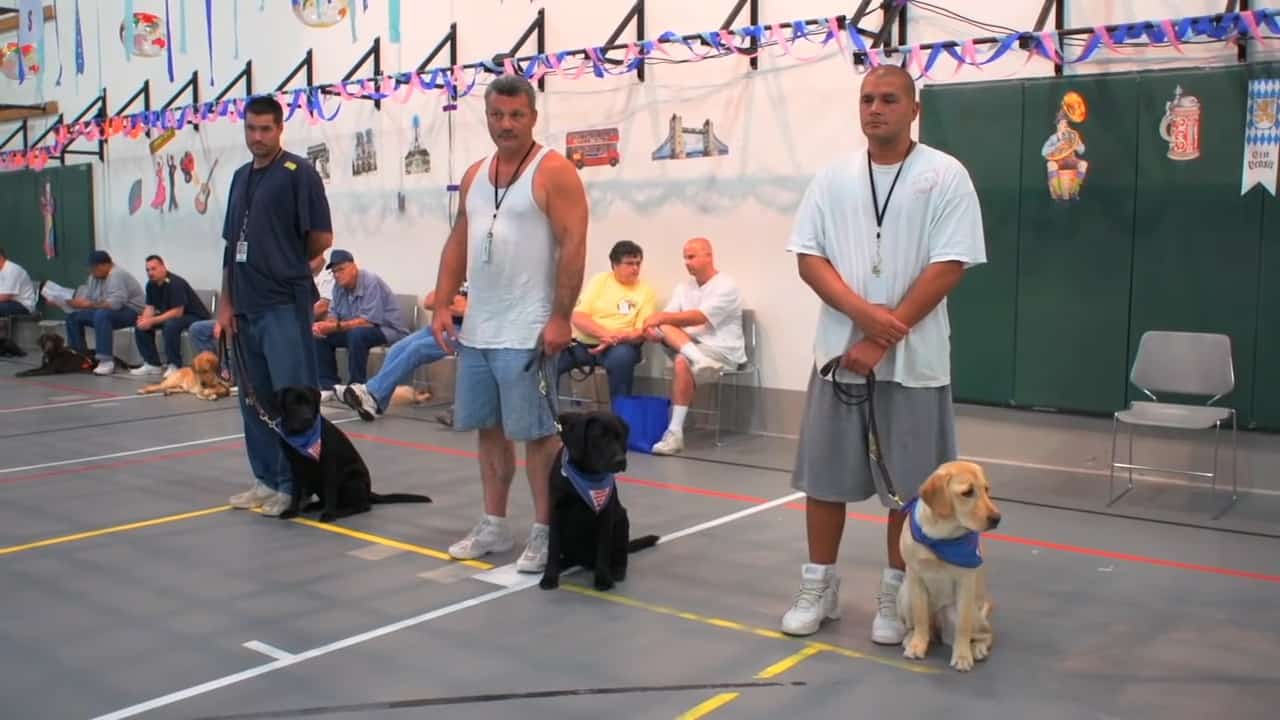
The first Prison Puppy was a Yellow Labrador named Maggie, assigned to Dennis Lass, a man serving a life sentence.
He said, “I was given a rare opportunity to help somebody else, to let them enjoy life to the fullest. That’s an awesome thing because in a prison setting, especially, those opportunities are very rare. They just don’t come by.”
The inmates spend so much time with these pups that they become almost like their children.
“When you give up a dog, it is kind of a bittersweet moment. I was confident that he would be successful, but at the same time, you know, you’re losing a friend, someone that you’ve taken care of and been with for almost a year,” said Jason, one of the puppy raisers.
A Second Chance For All
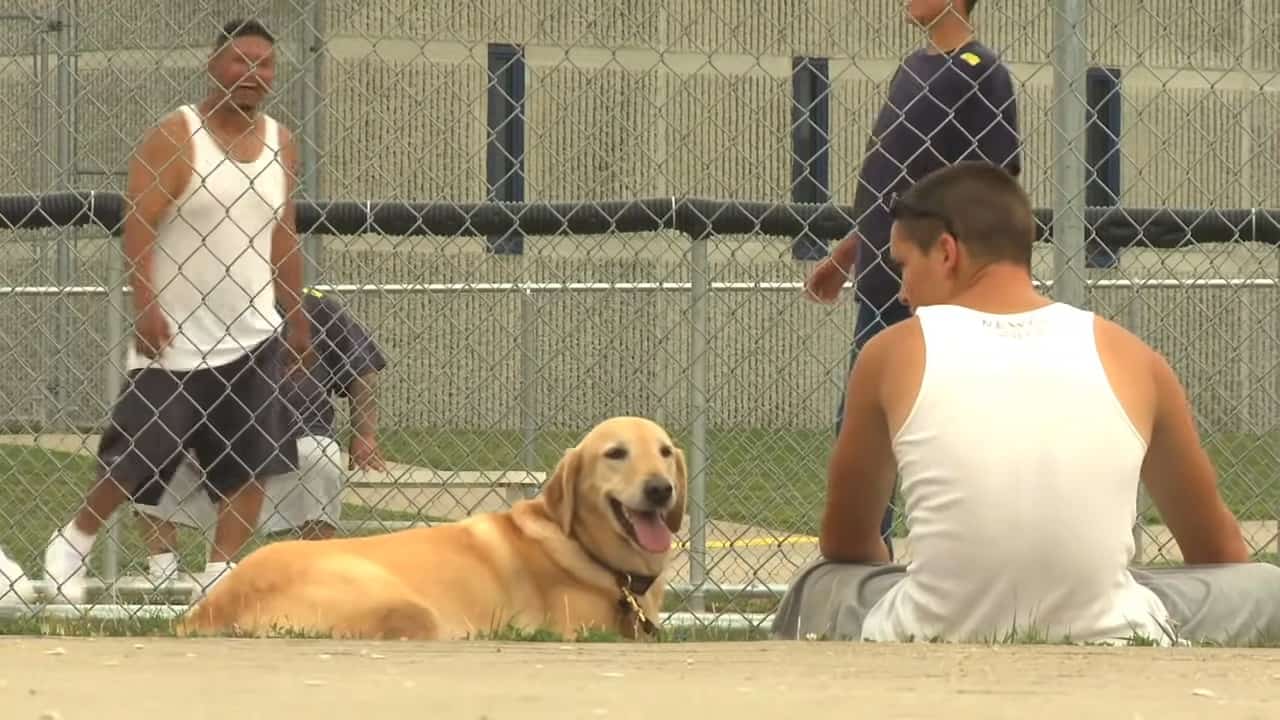
This initiative does not only have a profound impact on the organization, but also on the prisoners. Prison wardens have confirmed that puppies are a huge morale booster among inmates, as well as staff members.
“The dogs help reduce tensions and foster better social interactions within the prisons, and working with the dogs helps inmates develop patience, dependability, compassion, and self-esteem,” states the Leader Dog website.
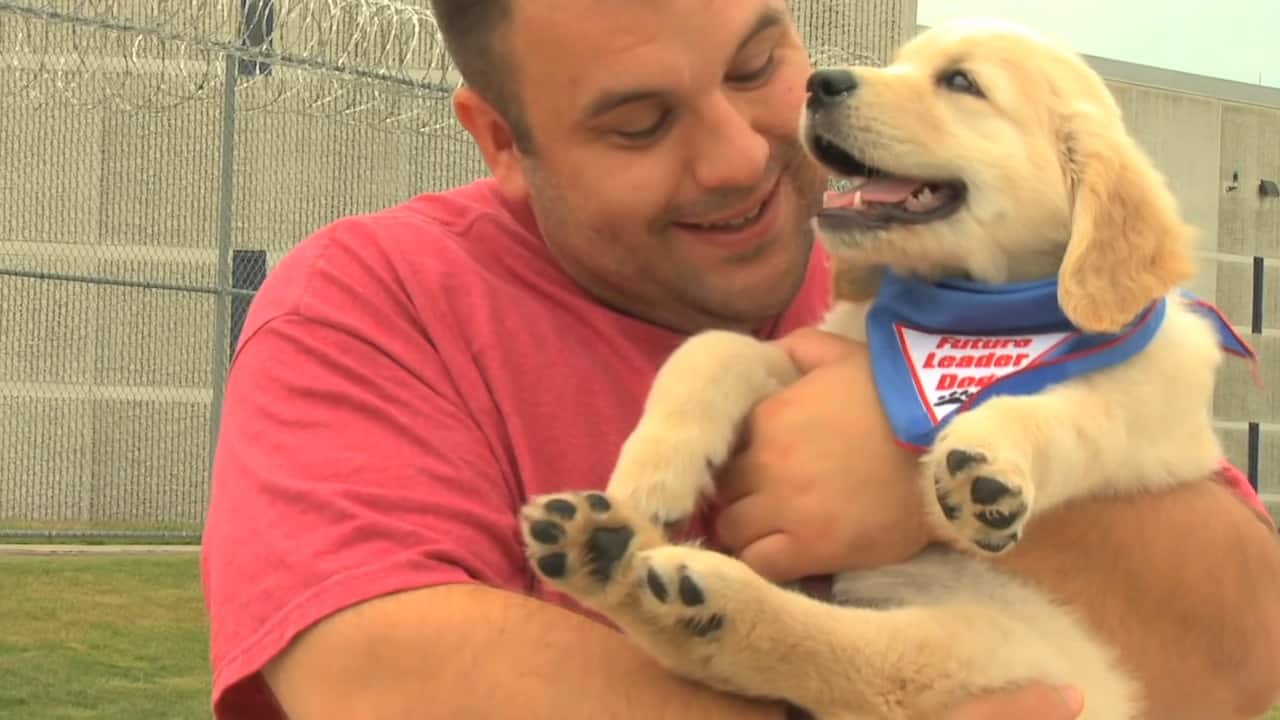
Prisoners who have worked with dogs have a reduced rate of recidivism (11 to 13% compared to 50% in facilities without puppies across the country) and a sense of pride and gratitude to have been able to give back to the society.
“There was a day when they took something – actually, many of them took a life from somebody, and all of that was for evil. At least, this time, something from them is gonna go for good. They’ll never equal that life they took, but at least they’re trying their best to make up for what they did,” said Jim McKinney, warden of Fort Dodge Correctional Facility.
In the end, it’s a win-win-win situation for everybody.
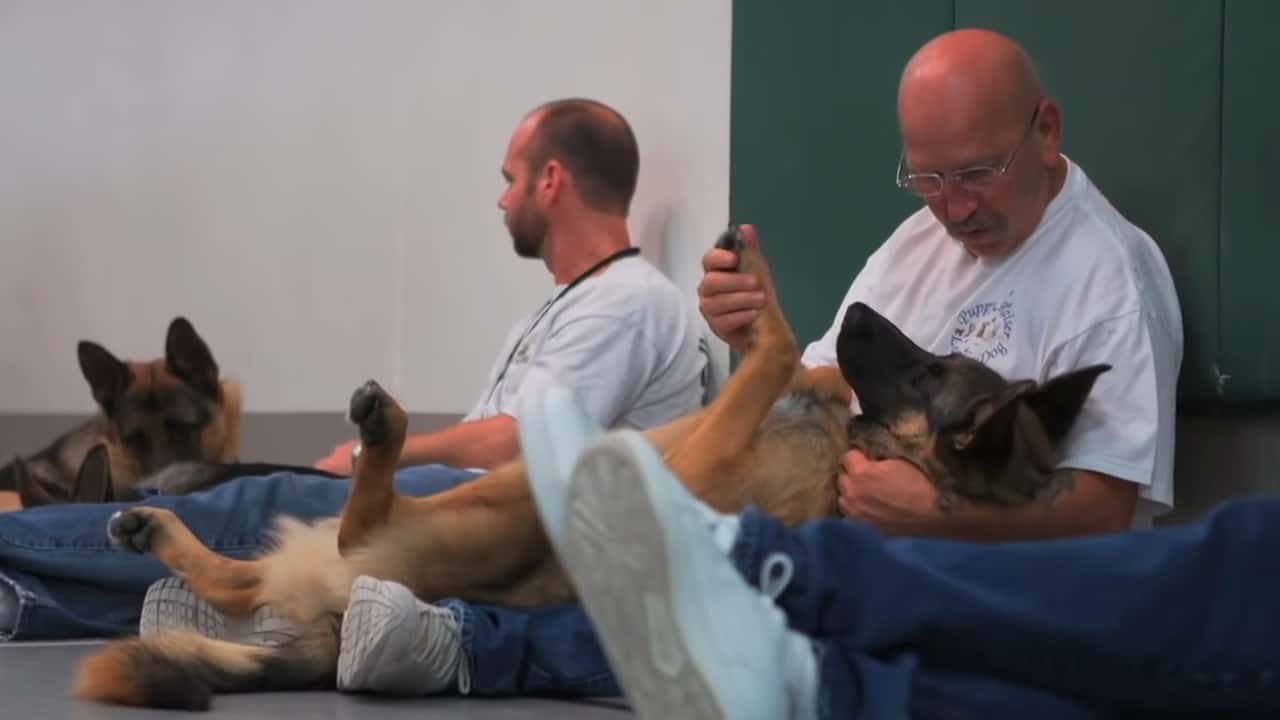
The inmates have the opportunity to give back to the community and do something good for a change.
Moreover, the Leader Dog organization receives well-trained dogs, and most importantly, the blind and visually impaired receive a canine partner that will help them lead a more fulfilling life.
Both the inmates and the blind start as prisoners, and because of the dogs, they both have the opportunity to change their lives.
What an incredible, life-changing impact a little furry creature can have – it’s simply amazing.















